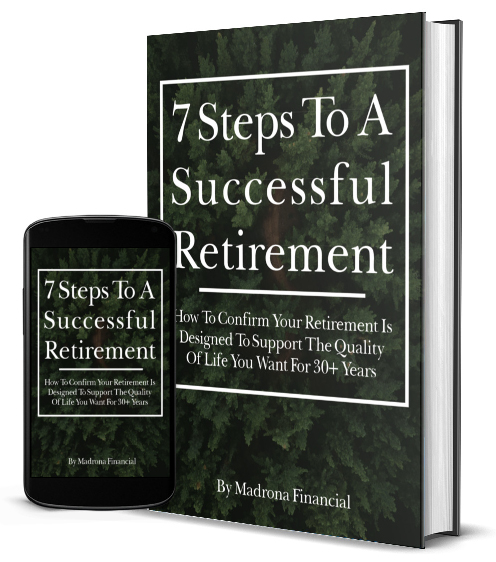Investment management does not have to be complicated to achieve the best results. It starts with your goals, time horizon and risk tolerance and ends with a comprehensive financial plan that mitigates your exposure to risk, minimizes your tax liability and maximizes your potential returns.
Investment Advisors are cliché, a dime a dozen, each thinking that they have “it” all figured out forever. What is “it?”
“It” is how to make money while “never” losing any. Right?
How many ads do you see on a daily basis talking about investing and making money? How many talk about losing money? Exactly, ZERO! Why is this? How do you think investment advisors can get you to invest using their firm if you are already thinking about losing money when you meet them?
What is the average person to do? How do you determine which advisor to use to help grow your investments?

There are some general principles to adhere to when looking for investment advice, or when looking to employ an investment professional or firm.
First, you want to do business with advisors that do not take custody of assets. “Custody” means that they physically hold your cash, securities, and investments and only certain companies are qualified to do so. Generally speaking, it is best to separate the advisor and their advice from having access to your cash and investments. Assets should be held at a third-party firm that is registered to do so, such as Fidelity Investments or TD Ameritrade. This will help protect you from a potential Bernie Madoff-type situation.
The second principle is to make sure that your professional or their firm has a strategy and a process for investing and that they follow it. Process takes the emotion out of investing and helps to moderate investment behavior. Many firms will take your money, place it in a few different index funds, and leave it alone while never actively helping you manage your money. You could do this on your own!
Professionals should have expertise to offer you expertise that they earned through a lot of hard work and experience. This is what you are paying for and if they don’t have it then why pay for it?
Ask yourself, “What am I paying them for? What is their value-add? What are they providing that I can’t get anywhere else?”

If they can’t provide the answers to those questions for you, if they can’t articulate what makes them unique and specifically, what their uniqueness will do for you, then you should run away and run fast! You could do this on your own but you shouldn’t. Find the right people to work with and pay them; you will be glad that you did.
The third principle is transparency from your advisor and transparency with the investments they are choosing for you. This is an integrity issue. An advisor and their company must disclose fees, commissions (there may not be any), conflicts of interests, company policies and procedures, prudence, whether they custody assets, and so on. They are going to become your financial partner and similar to marriage, you should not enter into the arrangement without full disclosure.
Taking my marriage analogy a bit further, get to know them; court them for a while; have multiple meetings before you decide to give them your life savings to invest. Don’t rush to place your trust in them. Start to build trust through the interview process as you look to learn more about their business practices, investment process, and company personnel and policies.
Finally, back to losing money. Be sure to ask them when they lost money it should be “top of mind” for them and something that is easy to report to you. Why? Because we all have lost money. In our business we aspire to not lose money but we remember very clearly when we have. In similar fashion to a doctor who takes an oath to do no harm but sometimes does some harm, honest financial advisors, looking out for your best interests, will strive to do their best while being clear about when they fell short.
We seek to minimize losses by using instruments that take emotion out of the investment process. Mutual funds and ETFs do just that and they allow us to draw upon the expertise of actively-managed fund managers. As a matter of fact, we make extensive use of “funds of funds” and “ETFs of ETFs.”
We are not stock pickers and this book is not designed to help readers pick stocks or time the markets.
Investors must sign an advisory agreement before they engage a financial advisor and move assets into the advisor’s control. The agreements are governed by the Securities and Exchange Commission and must disclose several things, including:

- Services to be provided
- Duration of the contract
- Advisory fee and the formula for computing the fee
- Amount of the prepaid fee to be returned in case of contract termination or nonperformance
Advisory agreements can cover a range of subjects. Ours advise clients who hold individual stocks in self-directed 401(k)s to roll them over into an ETF or mutual fund. Occasionally clients wish to exclude from our management stocks that they are “sentimentally attached to,” for example, one that they inherited from a family member. While we will agree to such an exclusion, after reading the chapter “False Loyalties” you might think twice about getting sentimental about any financial instrument.
We encourage investors to read and discuss the advisory agreements in detail. Better not to enter into a relationship with an advisor whose philosophy differs from yours than to be faced with unwinding that relationship later.
Bring together a team of three experts: CPA, Financial Advisor (RIA), and an Estate Planning Attorney (EPA). Put them in the same room and make them work together for your benefit. Give them complete authorization to disclose information to one another on a real-time basis. They should all know what you have, where it’s located, how it’s being used, how it’s held, and where it’s going when you die.
Typically, you can get to the other two through the one relationship that you may have. For instance, if you have a CPA, ask for referrals to an RIA and EPA.

